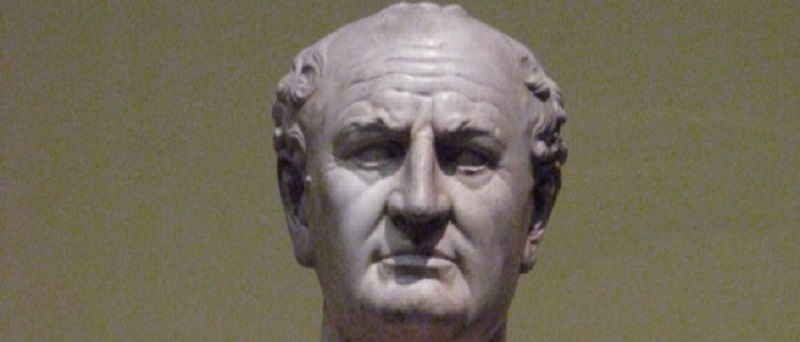Emperor Vespasian
Posted on 27th December 2020
Vespasian was born ‘Titus Flavius Caesar Vespanianus Augustus’ on 17 November 9AD.
He had an ordinary upbringing and did not wish to pursue public office or a military career, leaving his brother to rise through the ranks of public office. His mother however had other ideas for Vespasian and taunted him into a military career.
In 39AD Vespasian married Flavia Domitilla in what is believed to have been a love match. They had three children together; two sons and a daughter. His sons would both succeed Vespasian as emperors, but his wife and daughter died before he became emperor.
Vespasian served in the military, though not with much success or esteem early on; he did however return to Rome in 39AD to pursue a political career.
When he returned to military life, he commanded nine legions during the Invasion of Britain between 43 – 47AD, in this he distinguished himself in battle.
This led to him becoming consul in 51AD and later pro-consul of Africa in 63AD, being praised for his administration during this time.
After falling out with the present emperor Nero in 66AD by falling asleep during one of Nero’s performances, he was later to be given command of three legions in 67AD to quell the Jewish rebellion. He continued in this fight until 69AD.
Emperor Nero died in 68AD, succeeded by Galba who was then murdered. Otho became emperor, but he committed suicide, then succeeded by Vitellius, who was murdered. It seemed a dangerous occupation to become emperor of Rome, and this was to cause civil war in Rome.
Emperor 69AD – 79AD
Vespasian was declared emperor by the senate in December 69AD, while still in Egypt; this year becoming known as ‘year of the four emperors’
Vespasian arrived in Rome in mid 70AD. To quickly secure his rule, he gave presents to both the military and the public.
Little is known about Vespasian’s rule, although it is believed to have been a calm and stable government following civil war. During his rule he did undertake a large construction programme, and it is said that he survived many conspiracies and attempts on his life, although only one is actually known about.
Vespasian’s greatest achievement that we know of today is the building of the colosseum in Rome. The construction of the colosseum began in 72AD however Vespasian did not live to see it completed. He became ill in 79AD and retreated to his summer home near Rieti. When feeling ill he said ‘Oh my, I must be turning into a god’.
He died of natural causes on 23 June 79AD. On his deathbed he stated ‘An emperor ought to die standing upright’. He died in the arms of the men helping him to his feet.
Historian Tacitus wrote of Vespasian ‘the only emperor who had changed for the better’.
Tagged as: Junior Ancient Rome
Share this post:





